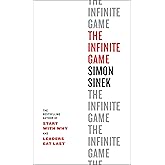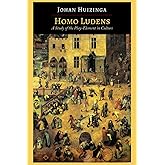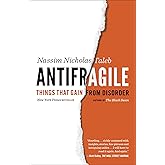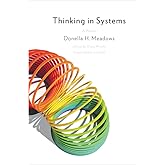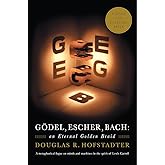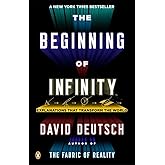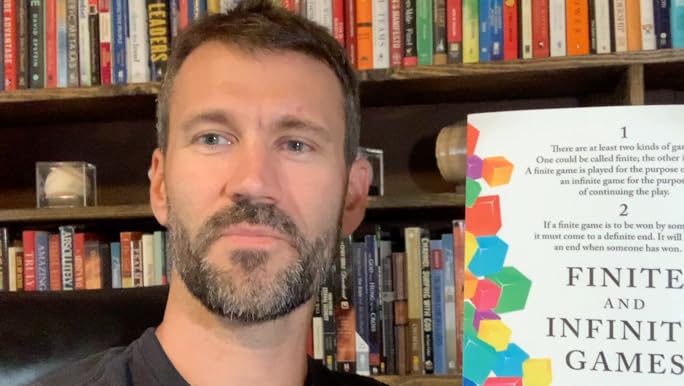
Download the free Kindle app and start reading Kindle books instantly on your smartphone, tablet, or computer - no Kindle device required.
Read instantly on your browser with Kindle for Web.
Using your mobile phone camera - scan the code below and download the Kindle app.



 Audible sample
Audible sample Finite and Infinite Games Paperback – January 5, 2013
Finite games are the familiar contests of everyday life; they are played in order to be won, which is when they end. But infinite games are more mysterious. Their object is not winning, but ensuring the continuation of play. The rules may change, the boundaries may change, even the participants may change—as long as the game is never allowed to come to an end.
What are infinite games? How do they affect the ways we play our finite games? What are we doing when we play—finitely or infinitely? And how can infinite games affect the ways in which we live our lives?
Carse explores these questions with stunning elegance, teasing out of his distinctions a universe of observation and insight, noting where and why and how we play, finitely and infinitely. He surveys our world—from the finite games of the playing field and playing board to the infinite games found in culture and religion—leaving all we think we know illuminated and transformed. Along the way, Carse finds new ways of understanding everything, from how an actress portrays a role to how we engage in sex, from the nature of evil to the nature of science. Finite games, he shows, may offer wealth and status, power and glory, but infinite games offer something far more subtle and far grander.
Carse has written a book rich in insight and aphorism. Already an international literary event, Finite and Infinite Games is certain to be argued about and celebrated for years to come. Reading it is the first step in learning to play the infinite game.
- Print length160 pages
- LanguageEnglish
- Publication dateJanuary 5, 2013
- Dimensions0.55 x 5.51 x 8.31 inches
- ISBN-101476731713
- ISBN-13978-1476731711
Book recommendations, author interviews, editors' picks, and more. Read it now.
Customers who bought this item also bought
 Finite players play within boundaries; infinite players play with boundaries.Highlighted by 3,773 Kindle readers
Finite players play within boundaries; infinite players play with boundaries.Highlighted by 3,773 Kindle readers A finite game is played for the purpose of winning, an infinite game for the purpose of continuing the play.Highlighted by 3,683 Kindle readers
A finite game is played for the purpose of winning, an infinite game for the purpose of continuing the play.Highlighted by 3,683 Kindle readers To be prepared against surprise is to be trained. To be prepared for surprise is to be educated.Highlighted by 3,645 Kindle readers
To be prepared against surprise is to be trained. To be prepared for surprise is to be educated.Highlighted by 3,645 Kindle readers
Editorial Reviews
About the Author
Product details
- Publisher : Free Press; 1st edition (January 5, 2013)
- Language : English
- Paperback : 160 pages
- ISBN-10 : 1476731713
- ISBN-13 : 978-1476731711
- Item Weight : 5.6 ounces
- Dimensions : 0.55 x 5.51 x 8.31 inches
- Best Sellers Rank: #32,629 in Books (See Top 100 in Books)
- #17 in Social Philosophy
- #40 in Philosophy Metaphysics
- Customer Reviews:
About the author

Discover more of the author’s books, see similar authors, read book recommendations and more.
Customer reviews
Customer Reviews, including Product Star Ratings help customers to learn more about the product and decide whether it is the right product for them.
To calculate the overall star rating and percentage breakdown by star, we don’t use a simple average. Instead, our system considers things like how recent a review is and if the reviewer bought the item on Amazon. It also analyzed reviews to verify trustworthiness.
Learn more how customers reviews work on AmazonCustomers say
Customers find the book thought-provoking and interesting. They describe it as a brilliant, must-read book that provides insightful game theory. However, some readers find the content dry, difficult to read, and boring at times. They also mention the pacing is slow and the length could be shorter. Opinions vary on the writing style - some find it well-written and rich in language, while others say it's written in aphorisms without any mathematics or reference to game theory.
AI-generated from the text of customer reviews
Customers find the book thought-provoking and a great addition to philosophical works. They appreciate its profound wisdom in simple words. The premise is fascinating, with an interesting way of viewing life. Readers mention that the lesson is versatile and has deep meaning.
"...for, you could find others, but to me this book offers the most amazing explanation to the philosophical question that beats under our skins all the..." Read more
"...This deeply profound little book is a truly a game changer." Read more
"...endpoints, and infinite games, played to continue the play and foster creativity...." Read more
"Life changing! This book will transform how you live your life. Pick up a copy of the book today! Wow" Read more
Customers find the book insightful and useful for work and personal purposes. They say it's challenging at first but worth the effort. The book is described as one of the best philosophical books they have read.
"...images he creates, but sticking with the book is well worth the difficulty at the beginning...." Read more
"...It is stunning. For me, this was a case of the absolute right book at the absolute right time, so maybe it’s not the right time and you’ll look..." Read more
"Must read book Very useful for both work and personal" Read more
"...Thank you for opening my eyes to this wonderful book. It solidified the notion that thinking as a contrarian is the key to wisdom." Read more
Customers find the concept of an infinite game intriguing. They appreciate the insightful distinctions between finite and infinite games. The book provides a vision of life as a game, with chapters titled in a sportive and poetic manner. Readers find the first few chapters exciting and the narrative style unique.
"...As the title suggests, this is a work on finite and infinite games that purports "a vision of life as play and possibility." So if life is a..." Read more
"...He flushes out the rules for playing infinite and finite games, demonstrating how everything in life is interrelated and interdependent, creating..." Read more
"James Carse's "Finite and Infinite Games" offers insightful distinctions between finite games, played to win with clear rules and endpoints, and..." Read more
"...You will understand the games that are played in life: finite and infinite games, and how to become better at them, behold what's possible...." Read more
Customers have different views on the writing style. Some find it accessible and well-written, with a poetic tone. Others feel the writing style is heavy on philosophy without any real-life context, making some concepts unclear.
"...(finite games) vs cooperation (infinite games), written in aphorisms without any mathematics or reference to game theory...." Read more
"...Then, what are the rules? The rules are simple but full of derivatives or branches that have no limit...." Read more
"...chunk of the second half though just started getting loopy, and losing meaning. The author loves these one liner "reversal sentences"...." Read more
"...The book starts out great, laying the foundations for looking at the world in terms of 'games' and defining all the conceptual tools needed to see..." Read more
Customers find the book difficult to read and boring at times. They say the language is dense and the concepts are mind-bending, making it not worth their time.
"...He's not a good writer. I'm going to push through to get this one done. Hopefully, though doubtful, it will improve...." Read more
"...It just makes for a boring read at times. I loved the ideas being talked about, but it took genuine effort to read on my kindle...." Read more
"...A thought provoking and interesting read that highlights some operate within boundaries others move them." Read more
"...In short: avoid this book if you want my opinion. It's not worth the time." Read more
Customers find the book's pacing slow and difficult to finish. They describe it as a bit dry and not an easy read.
"...was so dense, with explosions on almost every page; even my digital highlighter went dry...." Read more
"Save your time and money. I'm a little over half through the book; it's a slog. The author seems quite self-satisfied...." Read more
"...It's a really cool read, but definitely not an easy one." Read more
"It is a philosophical book to be sure - somewhat dry...." Read more
Customers find the book too long.
"Short, pithy disposition. Borders being repetitive but ultimately isn't. Provocative screen for viewing our culture and how it operates." Read more
"...But the book goes on WAY too long for my taste; I don't have any idea what's being talked about in the later chapters, but it seems the whole book..." Read more
"...Though not a long book it is a long read, as it requires your own engagement to connect to the story and ideas presented." Read more
"The short book could have been shorter. The thought model was a catalog of competition in life...." Read more
Reviews with images
Life as a simple game with rules but full of meanings.
Top reviews from the United States
There was a problem filtering reviews right now. Please try again later.
- Reviewed in the United States on June 12, 2016This is a book hard to classify. I bought it because I read some fragments of it in Robert Fulghum's Words I Wish I Wrote: A Collection of Writing That Inspired My Ideas, where he quotes some of the aphorisms with what James P. Carse, the author, fills and charms the book.
As the title suggests, this is a work on finite and infinite games that purports "a vision of life as play and possibility." So if life is a game you should play it and if you play it you should follow the rules. Right, but what are the rules. Well, here enters Carse, who in seven chapters defines the game and unfolds and explains the rules.
The seven chapters are named in a very sportive (and even poetic) manner: There are at least to kind of games; No one can play a game alone; I am the genius of myself; A finite game occurs within a world; Nature is the realm of the unspeakable; We control nature for societal reasons; Myth provokes explanation but accepts none of it.
And there you are. As I said, the book is written in an aphoristic mode, as in Also sprach Zarathustra/Thus Spoke Zarathustra: German/English Bilingual Text (German Edition), but with much more sense than that Nietzsche's brick. "Finite and Infinite..." is not a wanton sum of sayings more or less wise. So please do not confound games with lightness or pastime. At least not in this book. So you have to keep in mind, as long as you read, that this is a book about life ("A vision of life..."), not about playing games as a part of your life.
Then, what are the rules? The rules are simple but full of derivatives or branches that have no limit. Like life itself that starts with a very simple origin and grows up in complexity and variety. That's why the first paragraph says that "There are at least two kinds of games. One could be called finite; the other infinite." As long as this rule begins to increase in complexity is very helpful to keep that definition in mind. Carse says that a game can be won, so the game ends, which is the finite case. Or the game is playing continuously because the purpose is not winning but to follow up the game, which is the infinite case.
Let's quote Carse: "Infinite players cannot say when their game began, nor do they care. They do not care for the reason that their game in not bounded by time. Indeed, the only purpose of the game is to prevent it from coming to an end, to keep everyone in play." Sounds mysterious? It is. We play infinite games as long as we live, and the finite games we play are there not only to compensate (or to maintain under control the anxiety and) our ignorance of who wins at last in the infinite version, but also to be prepared against, and to be educated for the surprises and twists that life put in front of us: "To be prepared against surprise is to be 'trained.' To be prepared for surprise is to be 'educated.'"
The probe of this work descends very deep. That's the reason why the last chapter is dedicated to the myth issue. For several years I've been studying the singularities of a myth, the purpose they have, why they appeared, why they are here with us in spite of the exponential growing of knowledge through science and the technological development associated with it. And Carse offers here one of the most astounding answers to my search, which is presented in the very title of the chapter: "Myth provokes explanations but accepts none of it." It is as if finite and infinite games collide in this final movement of the play, remembering us what the author told us at the beginning of the book: "Infinite players cannot say when their game began, nor do they care. They do not care for the reason that their game is not bounded by time. Indeed the only purpose of the game is to prevent it from coming to an end, to keep everyone in play." If that is not the very source of a myth, then what.
Insofar as this book (a very brief book indeed, with 149 pages) is about games, we as a readers are players also, so maybe there are as many readings as readers. Or almost. Yet, it remains (or let) something that to me is unequivocal: life can be seen as a game so it has rules. This book propose that rules in a temporal basis (finite vs. infinite). If you look for, you could find others, but to me this book offers the most amazing explanation to the philosophical question that beats under our skins all the time: what is life?
A game. "There are at least to kind of games..."
Highly recommended.
 5.0 out of 5 stars Life as a simple game with rules but full of meanings.This is a book hard to classify. I bought it because I read some fragments of it in Robert Fulghum's Words I Wish I Wrote: A Collection of Writing That Inspired My Ideas, where he quotes some of the aphorisms with what James P. Carse, the author, fills and charms the book.
5.0 out of 5 stars Life as a simple game with rules but full of meanings.This is a book hard to classify. I bought it because I read some fragments of it in Robert Fulghum's Words I Wish I Wrote: A Collection of Writing That Inspired My Ideas, where he quotes some of the aphorisms with what James P. Carse, the author, fills and charms the book.
Reviewed in the United States on June 12, 2016
As the title suggests, this is a work on finite and infinite games that purports "a vision of life as play and possibility." So if life is a game you should play it and if you play it you should follow the rules. Right, but what are the rules. Well, here enters Carse, who in seven chapters defines the game and unfolds and explains the rules.
The seven chapters are named in a very sportive (and even poetic) manner: There are at least to kind of games; No one can play a game alone; I am the genius of myself; A finite game occurs within a world; Nature is the realm of the unspeakable; We control nature for societal reasons; Myth provokes explanation but accepts none of it.
And there you are. As I said, the book is written in an aphoristic mode, as in Also sprach Zarathustra/Thus Spoke Zarathustra: German/English Bilingual Text (German Edition), but with much more sense than that Nietzsche's brick. "Finite and Infinite..." is not a wanton sum of sayings more or less wise. So please do not confound games with lightness or pastime. At least not in this book. So you have to keep in mind, as long as you read, that this is a book about life ("A vision of life..."), not about playing games as a part of your life.
Then, what are the rules? The rules are simple but full of derivatives or branches that have no limit. Like life itself that starts with a very simple origin and grows up in complexity and variety. That's why the first paragraph says that "There are at least two kinds of games. One could be called finite; the other infinite." As long as this rule begins to increase in complexity is very helpful to keep that definition in mind. Carse says that a game can be won, so the game ends, which is the finite case. Or the game is playing continuously because the purpose is not winning but to follow up the game, which is the infinite case.
Let's quote Carse: "Infinite players cannot say when their game began, nor do they care. They do not care for the reason that their game in not bounded by time. Indeed, the only purpose of the game is to prevent it from coming to an end, to keep everyone in play." Sounds mysterious? It is. We play infinite games as long as we live, and the finite games we play are there not only to compensate (or to maintain under control the anxiety and) our ignorance of who wins at last in the infinite version, but also to be prepared against, and to be educated for the surprises and twists that life put in front of us: "To be prepared against surprise is to be 'trained.' To be prepared for surprise is to be 'educated.'"
The probe of this work descends very deep. That's the reason why the last chapter is dedicated to the myth issue. For several years I've been studying the singularities of a myth, the purpose they have, why they appeared, why they are here with us in spite of the exponential growing of knowledge through science and the technological development associated with it. And Carse offers here one of the most astounding answers to my search, which is presented in the very title of the chapter: "Myth provokes explanations but accepts none of it." It is as if finite and infinite games collide in this final movement of the play, remembering us what the author told us at the beginning of the book: "Infinite players cannot say when their game began, nor do they care. They do not care for the reason that their game is not bounded by time. Indeed the only purpose of the game is to prevent it from coming to an end, to keep everyone in play." If that is not the very source of a myth, then what.
Insofar as this book (a very brief book indeed, with 149 pages) is about games, we as a readers are players also, so maybe there are as many readings as readers. Or almost. Yet, it remains (or let) something that to me is unequivocal: life can be seen as a game so it has rules. This book propose that rules in a temporal basis (finite vs. infinite). If you look for, you could find others, but to me this book offers the most amazing explanation to the philosophical question that beats under our skins all the time: what is life?
A game. "There are at least to kind of games..."
Highly recommended.
Images in this review
- Reviewed in the United States on October 29, 2014Questions about what constitutes the work of the infinite versus the finite have been contemplated by the lowliest and highest spiritual seekers throughout time. Such questioning is often serious or at the least solemn as a quest for right living, whether one is religious or not. But how many of us have viewed this questioning through the lens of systems thinking and cybernetics? Professor Emeritus of history and literature of religion at New York University did just that when he wrote Finite and Infinite Games.
Breaking new ground in the way we can think about the infinite versus the finite, Carse questions these two concepts in the form of games that we play in everyday life. His writing style reminds one of a physicist’s description of the components of complexity—all things and no things being possible at the same time. He flushes out the rules for playing infinite and finite games, demonstrating how everything in life is interrelated and interdependent, creating wholes greater than the sum of their parts, true to systems thinking. By using this perspective, Carse then goes deeper into each system, finite and infinite, showing how one must interact within it in order to be finite or infinite in one’s play, as a cyberneticist would. All of a sudden, one’s perception about the infinite and finite is transformed from typically a religious/spiritual viewpoint to one more humanistic and closer to daily experience.
Because Carse changes so drastically the language one generally finds in works discussing the finite and infinite, it is a little difficult to grasp the game images he creates, but sticking with the book is well worth the difficulty at the beginning. For instance, he starts out saying, “There are at least two kinds of games. One could be called finite, the other infinite. A finite game is played for the purpose of winning, an infinite game for the purpose of continuing the game” (Carse, 2012, p.3). Once the rules for playing both finite and infinite games are laid out, Carse takes the reader through the various ways we tend to play these games through politics, religion, sexuality, the roles people choose, society, culture, and our relationship to nature, to name a few. One ends up with a completely new way of thinking about how to approach life. This deeply profound little book is a truly a game changer.
- Reviewed in the United States on June 11, 2024James Carse's "Finite and Infinite Games" offers insightful distinctions between finite games, played to win with clear rules and endpoints, and infinite games, played to continue the play and foster creativity. Carse provocatively invites us to see life as an evolving journey filled with possibilities, emphasizing the importance of freedom in genuine play with nuggets like "one who must play cannot play." His framework encourages us to embrace an infinite mindset, viewing life as an open-ended adventure rather than a series of finite achievements.
However, Carse's rigid categorization risks imposing a Hegelian, deterministic structure that oversimplifies the rich, multifaceted nature of human engagements. The danger is in following him too closely and missing the dynamic, open-ended reality of life, where finite actions support infinite aims, and we continuously reinvent ourselves in a world full of shifting possibilities. By categorizing activities too neatly, Carse may overlook the fluid interplay between finite and infinite elements, failing to capture the true complexity of human experiences and the boundless potential inherent in every moment.
- Reviewed in the United States on September 16, 2024Life changing! This book will transform how you live your life. Pick up a copy of the book today! Wow
- Reviewed in the United States on November 10, 2024It is a mind game. The reader has to make up its own mind as to what the author wants to convey. I came away with the old saying, the glass is half full or half empty question. I give this book only a mid range rating. I’m keeping the book. I don’t know about your decision.
Top reviews from other countries
 RaskolnikovReviewed in Mexico on May 21, 2023
RaskolnikovReviewed in Mexico on May 21, 20235.0 out of 5 stars The book I have re-read the most in my life. Unfortunately, low quality materials
I have purchased several copies of this book to give away. The book itself is a revelation about life and the writing is crafted with the highest precision.
 Amazon CustomerReviewed in India on May 8, 2023
Amazon CustomerReviewed in India on May 8, 20235.0 out of 5 stars grt read
enjoyed reading ! wd recommend.
 AdamReviewed in Germany on March 11, 2023
AdamReviewed in Germany on March 11, 20235.0 out of 5 stars Game Modes of Life
In one of his 101 remarks, Carse emphasises the social character of playing the game called life by pointing out that “one cannot be human by oneself”. At its core, this book is a study of different modes of engagement in the “game”, covering multiple topics and general concepts such as property, sexuality, nature or myth. Carse’s skilful use of philosophical references, some of which include Nietzsche, Rousseau, Locke, Heidegger and Freud, makes it an interesting read.
The fundamental differentiation between ‘finite’ and ‘infinite’ games is exemplified by various situations we find ourselves in our lives. ‘Infinite’ goals can be conceived as ones without the need of attaining something concrete or final. Infinite exercises are meant to be performed continuously as a virtue in itself. It seems worthwhile and helpful to apply this distinction actively, making this book an example of practical philosophy at its best.
-
 AGNOLETTI VANNIReviewed in Italy on August 8, 2022
AGNOLETTI VANNIReviewed in Italy on August 8, 20225.0 out of 5 stars Interessante punto di vista
Stimolante e attuale nonostante sia datato
 Paulo Seixas AvinoReviewed in Brazil on June 6, 2020
Paulo Seixas AvinoReviewed in Brazil on June 6, 20205.0 out of 5 stars A book about strategy
I recommend this book.



